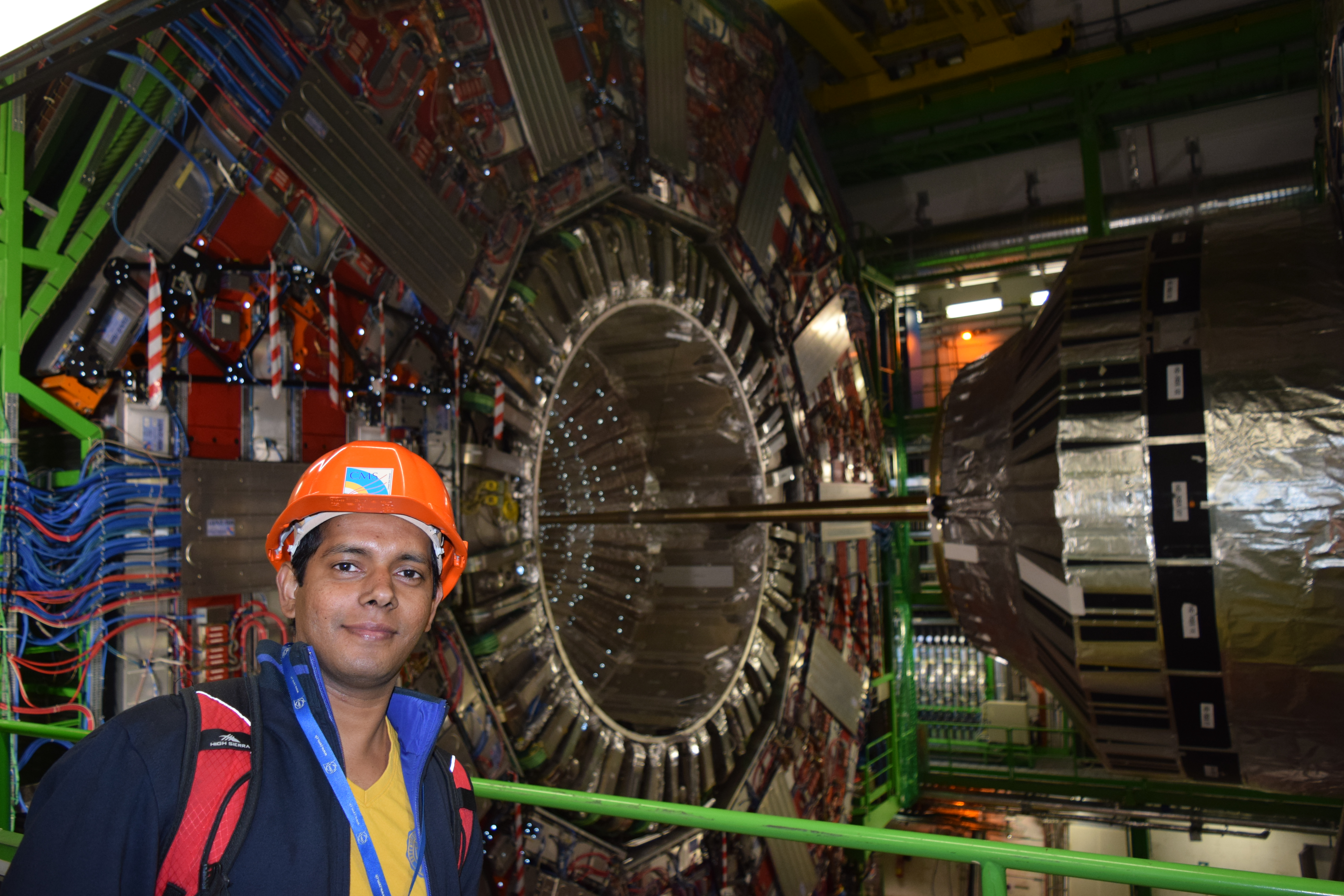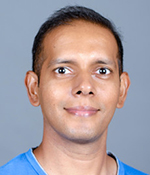Bringing Nuclear and Particle Physics to Goa University
December 3, 2020

By Prabhakar Palni (Prabi)
 I graduated from the University of New Mexico under the guidance of Sally Seidel, Igor Gorelov, and Martin Hoeferkamp. My dissertation involved the search for a heavy baryon resonance state, Lambda_b^*0, using data from the Collider Detector at Fermilab (CDF). We found this first evidence of the bottom baryon resonance state and published it in Phys. Rev. D 88, 071101 (Rapid Comm.), (2013).
I graduated from the University of New Mexico under the guidance of Sally Seidel, Igor Gorelov, and Martin Hoeferkamp. My dissertation involved the search for a heavy baryon resonance state, Lambda_b^*0, using data from the Collider Detector at Fermilab (CDF). We found this first evidence of the bottom baryon resonance state and published it in Phys. Rev. D 88, 071101 (Rapid Comm.), (2013).
After completing my PhD, I worked as a visiting scholar at the National Superconducting Cyclotron Lab (NSCL) on the Symmetry Energy Project. I next joined Central China Normal University (CCNU), Wuhan, as a postdoctoral fellow, where I worked on projects involving Multiple Parton Interactions as well as a multiplicity-dependence study of charged particle and strange hadron production in proton-proton collisions with the ALICE detector at CERN. We measured strange and multi-strange hadron production at high multiplicities using dedicated high multiplicity triggers in proton-proton collisions at center-of-mass energy 13 TeV [Eur. Phys. J. C, 80, 167, (2020)]. This work was a follow-up to and confirmation of exciting ALICE results on strange particle production at center-of-mass energy 7 TeV in proton-proton collisions [Nature Physics, 13, 535-539, (2017)].
Postdoc at the AGH
After finishing my term at CCNU, I joined the ATLAS group at the AGH University of Science & Technology in Krakow, Poland, as a postdoctoral fellow. At AGH, I carried out light-by-light scattering studies. This is a quantum-mechanical phenomenon that is forbidden in the classical theory of electrodynamics; however, in the Standard Model, it is possible via a virtual one-loop box diagram containing charged fermions or W bosons. This work led to the discovery of light-by-light scattering, and we have observed the signature of this process with a significance of 8.2 standard deviations [Phys. Rev. Lett. 123, 052001 (2019)]. This new measurement opened the door to study the contributions from particles beyond the Standard Model as well as a new generation of searches for hypothetical light and neutral particles. I further contributed to the search for axion-like particles and differential light-by-light scattering cross-section studies with the full Run II Pb + Pb data set [arXiv:2008.05355]. During my tenure at AGH, I received a Young Scientist Fellowship for the academic year 2019-2020.
Present status
Recently, I joined Goa University as an Assistant Professor. Goa is a beautiful state on the southwest coast of India. I am excited to establish the first nuclear and particle physics group at Goa University and will be joining either the CMS or ALICE collaborations. In addition to analysing LHC data, I carry out phenomenological studies focusing on the underlying event and multi-particle interactions in small systems. In recent work, my team measured strange and multistrange hadron production in proton-proton collisions using the relative underlying event transverse multiplicity activity classifier [Eur. Phys. J. C, 80, 919, (2020)]. I am looking forward to continue working on my key research interests, particularly light-by-light scattering processes in Ultra-Peripheral Collisions, production of top quark pairs in heavy ion collisions, and the study of soft QCD processes (including particle production and multiple particle interactions) in small systems.
Moreover, I have recently joined the research team dedicated to the future Electron-Ion Collider (EIC) that will be sited at Brookhaven National Laboratory. For the EIC collaboration, I will collaborate on the silicon tracking and vertexing detector and software development and validation.
At Goa University, I supervise motivated graduate students, and I am delighted to teach the Statistical Mechanics course to graduate students this Fall 2020. Two master students, Namita Rane and Sidhanth Prabhu Desai have joined my group to work on the Electron-Ion Collider (EIC) Project. They are going to contribute towards the EIC software development and validation.
Contact details
Department of Physics, Room No. AG-28 Faculty Block A
Goa University
Taleigao Plateau
Goa, India, 403206
Office Phone: +91- 8669609214.
Email: prabhakar.palni@unigoa.ac.in
prabhakar.palni@cern.ch
Website:
